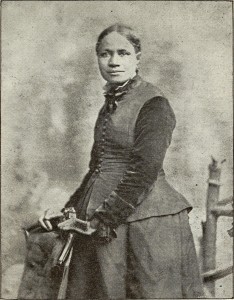From Your Minister
April 1, 2016Podcast: Download (Duration: 5:34 — 5.1MB)
Subscribe: More
 Now that I’m an adult, I can see that my father was jealous of my older brother. An only child himself, he was used to having the full attention of his parents, and then his wife. Read more →
Now that I’m an adult, I can see that my father was jealous of my older brother. An only child himself, he was used to having the full attention of his parents, and then his wife. Read more →
REsources for Living
April 1, 2016Podcast: Download (Duration: 4:28 — 4.1MB)
Subscribe: More
The Passover story is a story of freedom. And it’s inspired a lot of people who were seeking freedom, including slaves in the American South. Read more →
Notice of Annual Meeting
April 1, 2016Podcast: Download (Duration: 1:20 — 1.2MB)
Subscribe: More
To all members of the Church of the Larger Fellowship, Unitarian Universalist
Per Article VII, Sections 1 and 2, of the Church of the Larger Fellowship (CLF) Bylaws, the 44th Annual Meeting will be held via conference call and screen sharing on June 14, 2016 at 6:00PM EDT. Read more →
Did You Know?
April 1, 2016Podcast: Download (Duration: 0:17 — 280.8KB)
Subscribe: More
That you can listen to Quest Monthly as a podcast? Read more →
We Have Not Come Here to Take Prisoners
April 1, 2016Podcast: Download (Duration: 0:56 — 878.4KB)
Subscribe: More
We have not come here to take prisoners
But to surrender ever more deeply
To freedom and joy. Read more →
Freedom
April 1, 2016April 2016
I wish that every human life might be pure, transparent freedom. —Simone de Beauvoir
Articles
Free for All
Rev. Gretchen HaleyI was 22, nursing a broken heart, and I knew for sure that I had to get out of town. Read more »
The Power and Poverty of Freedom
Rev. Susan Frederick-GrayFreedom is not just a crucial principle in our religious tradition. It is also a foundational value for the United States. Read more »
Cultivating the Courage to Act
Lena K. GardnerDid you know it’s part of the CLF mission to cultivate the courage to act? Help us continue to live into our mission, living into freedom by being bold and loving a broken world. Please make a $100 contribution or give what you can now, by visiting CFLUU or by calling 1-800-231-3027. Read more »
To All Get Free Together
Chris CrassTo become an anti-racist faith community, the key question for a white/white majority community is not “How do we get people of color to join our faith community?” Read more »
Slipped the Bonds
Rev. Vanessa SouthernThere are no summer camps open during the last week of August, so my family has taken to spending that week at the beach. Read more »
From Your Minister
Rev. Meg RileyNow that I’m an adult, I can see that my father was jealous of my older brother. An only child himself, he was used to having the full attention of his parents, and then his wife. Read more »
REsources for Living
Rev. Dr. Lynn UngarThe Passover story is a story of freedom. And it’s inspired a lot of people who were seeking freedom, including slaves in the American South. Read more »
Notice of Annual Meeting
Rebecca ScottPer Article VII, Sections 1 and 2, of the Church of the Larger Fellowship (CLF) Bylaws, the 44th Annual Meeting will be held via conference call and screen sharing on June 14, 2016 at 6:00PM EDT. Read more »
We Have Not Come Here to Take Prisoners
Quest for MeaningWe have not come here to take prisoners, But to surrender ever more deeply, To freedom and joy. Read more »
Freedom
Quest for Meaning“I wish that every human life might be pure, transparent freedom.” —Simone de Beauvoir Read more »
Moving Toward Freedom
March 31, 2016Frances Ellen Watkins Harper was born a free Black woman in Baltimore, Maryland in 1825. She was raised in the household of her uncle, an educator and African Methodist Episcopal (AME) minister. He was also an abolitionist—a person who objected to the enslavement of blacks. Harper became an educator and abolitionist as well. She also became a writer, publishing her first book of poetry at twenty and later in life publishing the first short story by an African American woman. Her writing often urged Blacks, women, and people in oppressed groups to take a firm stand for equality and freedom.
In 1850, the Fugitive Slave Act was passed. It became dangerous to be a free Black in Maryland because slave owners could claim Black people were runaway slaves and force them into slavery. So, Harper moved farther north to Ohio and then to Philadelphia. She taught, ran part of the Underground Railroad helping slaves escape to freedom, and lectured around the country.
In 1863, abolitionists celebrated success with the passage of the Emancipation Proclamation, which freed the slaves. But there was a long road ahead to full equality, and Harper spent the rest of her life working for women as well as African Americans to have access to full freedom and justice.
To read some of Harper’s poems click here.
Freedom . . . for Which?
July 4, 2013I subscribe to the notion that separating out religion from other meaning-making systems is valid only for the sake of convenience. I agree with anthropologist Jonathan Z. Smith who says,
Religion is solely the creation of the scholar’s study. It is created for the scholar’s analytic purposes by his imaginative acts of comparison and generalization. Religion has no existence apart from the academy. (Imagining Religion)
Allowing for humor and rhetorical overstatement, Professor Smith’s point is that we human beings exist in a matrix of symbolic systems that we separate out only for the sake of contemplating (and one hopes clarifying) them. In our minds and in our lives, the meanings are all mushed up, a puree or whip of meaning and purpose. Sometimes we question the powers that be in our lives; often we don’t.
Since Emanuel Kant, it has been clear to many people that human beings are meaning-making creatures and that the meanings we create exist in systems of narrative and symbol. In these systems, it’s us or them: we control them, or they control us. Whenever we aren’t paying attention, it is the latter.
Religions are one way human beings create meaning. A religion is a subset of narrative and symbol within a system. A system separated only for convenience and clarity.
Given this mushy matrix, removing what is conventionally called “religious” (or “spiritual”) from a personal or collective meaning-making system does not leave a hole or gap, but is rather an opening that other symbolic systems will fill.
If the god concept does not guarantee or underwrite meaning and purpose for a human being, something else will . . . perhaps even the insistence that life has meaning and purpose without the god concept! (Hence the “angry atheist” syndrome.)
Think for a moment how many people you know who actually take meaning and purpose from the god concept. My suspicion is that the concept actually functions as shorthand for something else in most human lives.
Theologian Gordon D. Kaufman gives his view, writing:
The central question for theology is not . . . primarily a speculative question, a problem of knowledge at all. Most fundamentally it is a practical question: How are we to live? To what should we devote ourselves? To what cause give ourselves? Put in religious terms: How can we truly serve God? What is proper worship? (Face of Mystery: Constructive Theology)
Put succinctly: “What’s your cause?”
Your cause might be survival. Approval. Family. World peace.
Often the god concept becomes the straw man who underwrites preexisting wishes and prejudices. The symbolic systems we live in are difficult to see and even more difficult to separate into understandable strands. Most difficult of all is putting all the strands back into a conceivable whole. Yet, finally, there is no religion, no politics, no self. Only the forest of symbols we wander in.
As Jean-Paul Sartre once said, “Freedom is what you do with what’s been done to you.”
Renew Your Membership
We invite you to join your fellow CLFers to renew your CLF membership and stewardship of the CLF for another year.
Support the CLF
Can you give $5 or more to sustain the ministries of the Church of the Larger Fellowship?
If preferred, you can text amount to give to 84-321
Newsletter Signup
About
Quest for Meaning is a program of the Church of the Larger Fellowship (CLF).
As a Unitarian Universalist congregation with no geographical boundary, the CLF creates global spiritual community, rooted in profound love, which cultivates wonder, imagination, and the courage to act.
Contact
Church of the Larger Fellowship Unitarian Universalist (CLFUU)
24 Farnsworth Street
Boston MA 02210





